I've been trying to follow this MSDN example, and using the code below. However, e.Error is ALWAYS null in RunWorkerCompleted even when an error does occur in SomeMethod();
private void WorkerDoWork(object sender, DoWorkEventArgs e)
{
getMethod = SomeMethod();
}
private void Worker_RunWorkerCompleted(object sender,
RunWorkerCompletedEventArgs e)
{
if (e.Error != null)
{
var result = ModernDialog.ShowMessage("Error occurred.... " +
e.Result, "ErrorTitle", MessageBoxButton.OK);
}
else if (e.Cancelled)
{
}
Else
{
}
}
Can anyone see what I'm doing wrong?
I can get around it by doing the following but I don't really understand why the example in MSDN is not working for me?
private void WorkerDoWork(object sender, DoWorkEventArgs e)
{
try
{
getMethod = SomeMethod();
}
catch(Exception ex)
{
e.Result = ex;
}
}
private void Worker_RunWorkerCompleted(object sender, RunWorkerCompletedEventArgs e)
{
if (e.Result is Exception)
{
var result = ModernDialog.ShowMessage("Error occurred.... " + e.Result, "ErrorTitle", MessageBoxButton.OK);
}
//etc
}
Also, using the second method I can't access the .Message from e.Result. For example, in WorkerDoWork I can use ex.Message
Edit: I've setup the worker to create it's own error and I still get e.Error == null. The variable displayed is a bit faint as CTRL+PrtSc makes it fade
